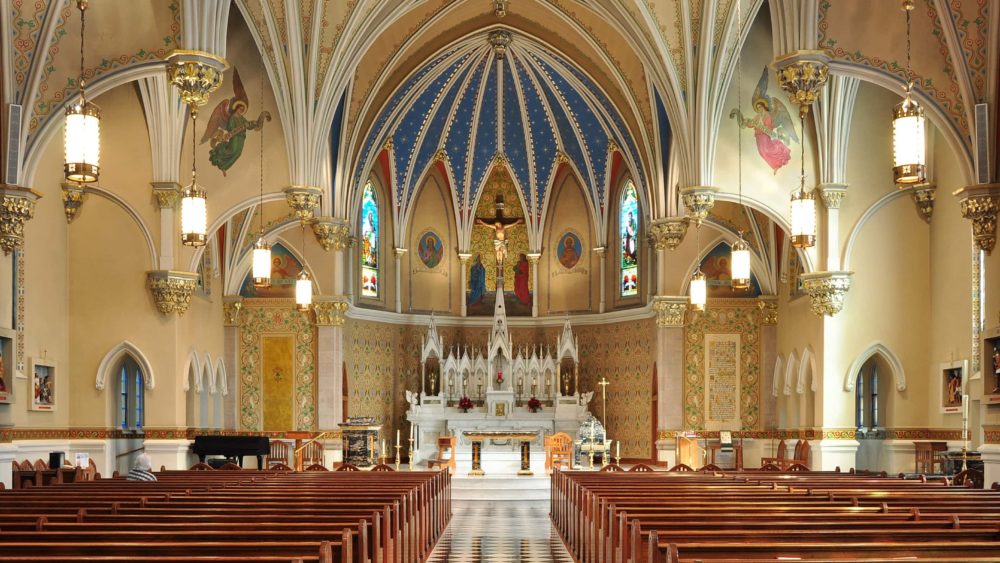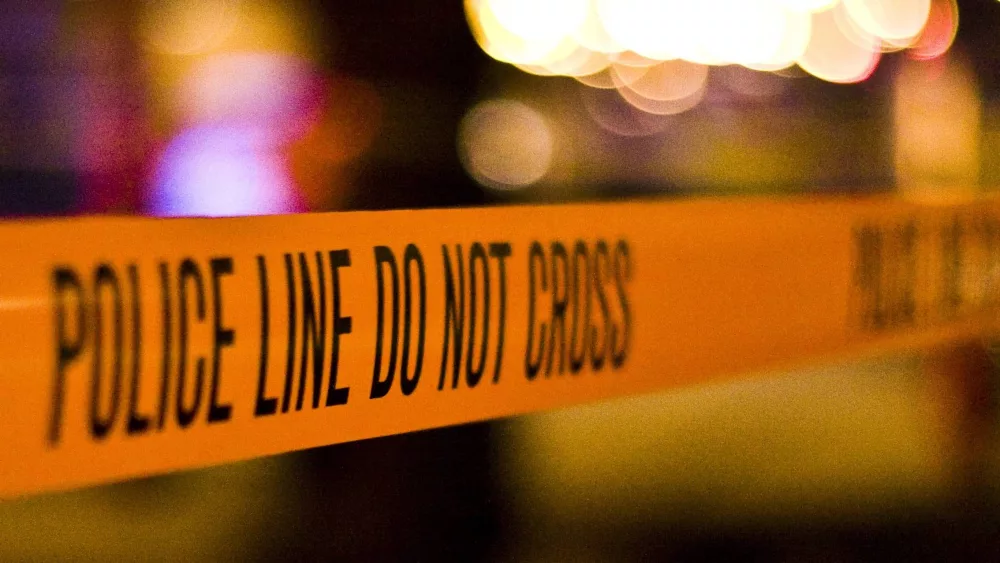CHICAGO (AP) — More than 450 Catholic clergy in Illinois sexually abused nearly 2,000 children since 1950, the state’s attorney general found in an investigation released Tuesday, revealing that the problem was far worse than the church had let on.
Attorney General Kwame Raoul said at a news conference that investigators found that 451 Catholic clergy abused 1,997 children in Illinois between 1950 and 2019, though he acknowledged that the statute of limitations has expired in many cases and that those abusers “will never see justice in a legal sense.”
“It is my hope that this report will shine light both on those who violated their positions of power and trust to abuse innocent children, and on the men in church leadership who covered up that abuse,” Raoul said, crediting the accusers for making the review possible. “These perpetrators may never be held accountable in a court of law, but by naming them here, the intention is to provide a public accountability and a measure of healing to survivors who have long suffered in silence.”
The review began in 2018 under Raoul’s predecessor, Lisa Madigan, who released a blistering report as she prepared to leave office. Raoul continued the investigation, and he said Tuesday that 25 staff members reviewed more than 100,000 pages of diocesan documents and engaged in more than 600 confidential interactions with contacts.
The lengthy report describes Illinois church leaders as woefully slow to acknowledge the extent of the abuse. It also accuses them of frequently dragging their feet to confront accused clergy and of failing to warn parishioners about possible abusers in their midst, sometimes even decades after allegations emerged.
In a joint statement issued Friday ahead of Raoul’s announcement, the state’s Catholic dioceses said the attorney general’s investigation prompted a yearslong review of their policies and unspecified changes. Cardinal Blase Cupich, archbishop of Chicago, on Monday called abuse “repugnant” but said the church in 1992 began overhauling its policies and programs and cooperated fully with the state’s review.
“My hope is that the release of this report will be an occasion for the attorney general to issue a rallying cry to all adults to join in the work of safeguarding children, lest this moment be a lost opportunity,” Cupich said. “I stand ready to continue to do my part.”
Much of the report is dedicated to individual accounts of sexual abuse and lists of clergy and religious brothers in each diocese accused of child sexual abuse. Some of those named have become infamous due to criminal proceedings or lawsuits, including Father Daniel McCormack, who was the subject of more than 100 abuse claims in the decades before his 2006 arrest for abusing five boys in Chicago.
He later pleaded guilty and was sentenced to five years in prison.
Even after McCormack’s first arrest in 2005 for sexual abuse, the Chicago archdiocese did not remove him from the ministry since those charges were dropped for a lack of evidence, the report says. An archdiocese review board recommended McCormack’s removal that year, but then-Cardinal Francis George declined.
According to the report, the mother of one of McCormack’s victims later said: “If Cardinal George (had) done the right thing, these other boys would not have been molested. (Instead), he just opened the door for (McCormack) to take advantage of other Black children.”
Many of the accounts contained in the report have remained private for decades. It includes the account of Bob Corcoran, who reported that Father Thomas Considine, who was a teacher at a high school in Elgin, repeatedly sexually abused Corcoran in the 1970s. Considine was removed from ministry in 1980 for undetermined reasons and died in 1988, the report states.
Corcoran told state investigators that he reported the abuse to the Rockford diocese in 2011 and that the church eventually determined his claims couldn’t be proven or disproven. He asked that Raoul’s office include his name in its final report and said the document’s release provided a sense of relief.
“To see the light at the end of the tunnel, and there is no longer a freight train racing towards me, is freeing,” Corcoran said in a statement released by his attorneys. “We all need to do our part in bringing resolution to the most vulnerable – children like you and me.”
In a statement released Tuesday, the Survivors Network of those Abused by Priests called the report “stunning” but emphasized that the numbers of victims and abusers cited by Raoul are likely undercounted. The group also called on state and local officials to conduct similar reviews.
“There is no questioning the facts of the report — until 2018 when the investigation began, hierarchs in every Illinois diocese kept known abusers under wraps, declined to include them on their accused lists, and refused to acknowledge the truth that survivors of abuse who came forward to make a report shared with them,” the group said.
Similar government-led investigations detailing reports of clergy sexual abuse and church leaders’ failure to hold perpetrators accountable have rocked archdioceses in other states, including Pennsylvania and Maryland.
The Catholic Conference of Illinois says 3.5 million Catholics make up approximately 27% of Illinois’ total population, and that the Church maintains 949 parishes and has 2,215 priests, 1,372 deacons, and 260 religious brothers.
Accusers and activists for years have complained that abusers belonging to orders have often been able to avoid the scrutiny other clergy received because of their semi-autonomy from archdioceses. The new report, however, officially names some former clergy tied to such orders.
Among those listed is Bruce Wellems, a former priest with the Claretians missionaries assigned for years to Hispanic neighborhoods in Chicago. His accuser says Wellems sexually abused him more than a dozen times starting in 1973 when they were neighbors in New Mexico. The accuser was in the second grade and Wellems was in high school. Wellems admitted in a 2014 interview with The Associated Press that he had inappropriately touched the boy, but he said he never again abused a child.
By KATHLEEN FOODY and MICHAEL TARM for the Associated Press
All contents © copyright 2023 Associated Press. All rights reserved.









